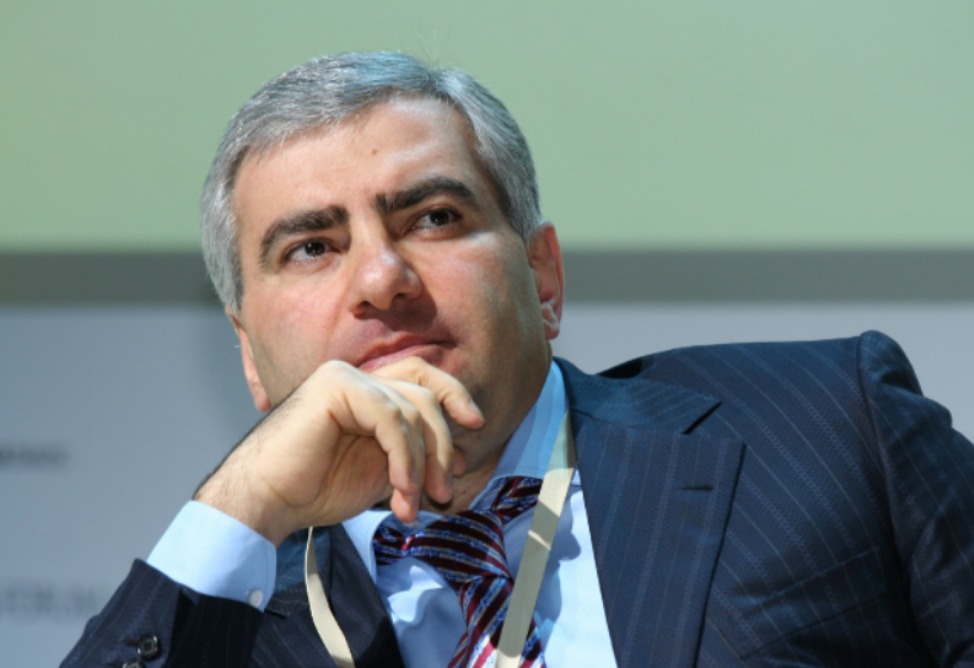Independence and security of Karabakh not subject of bargaining – foreign office’s response to Warlick
08.05.2014,
13:29
Independence and security of Nagorno-Karabakh Republic (NKR) are absolute values not subject to any bargaining, says the statement of NKR’s foreign ministry in response to yesterday’s speech of the OSCE Minsk Group US Co-Chair James Warlick.

YEREVAN, May 8. /ARKA/. Independence and security of Nagorno-Karabakh Republic (NKR) are absolute values not subject to any bargaining, says the statement of NKR’s foreign ministry in response to yesterday’s speech of the OSCE Minsk Group US Co-Chair James Warlick.
The stand of Nagorno-Karabakh Republic in the peace process remains unchanged. Any return to the past is out of the question, the future of Nagorno-Karabakh was determined through a free and legitimate expression of will in the 1991 referendum on independence, says the statement.
The Karabakh foreign ministry said the OSCE Minsk Group’s efforts should focus on the development of such settlement mechanisms that stem from the current realities and provide conditions for peaceful coexistence of two independent states - the Nagorno-Karabakh Republic and Azerbaijan – emerged as a result of the collapse of the USSR and the war unleashed by Azerbaijan.
On Wednesday the US Co-Chair of the OSCE Minsk Group James Warlick made a speech ta Carnegi Foundation in Washington and.
OSCE Minsk Group Co-Chair James Warlick delivered a speech on Karabakh at the Carnegie Endowment for International Peace on Wednesday, outlining U.S. position on the peace process. Warlick presented six elements to resolve the Karabakh conflict.
‘First, in light of Nagorno-Karabakh’s complex history, the sides should commit to determining its final legal status through a mutually agreed and legally binding expression of will in the future. This is not optional. Interim status will be temporary.
Second, the area within the boundaries of the former Nagorno-Karabakh Autonomous Region that is not controlled by Baku should be granted an interim status that, at a minimum, provides guarantees for security and self-governance.
Third, the occupied territories surrounding Nagorno-Karabakh should be returned to Azerbaijani control. There can be no settlement without respect for Azerbaijan’s sovereignty, and the recognition that its sovereignty over these territories must be restored’, Warlick said.
The Co-Chair also said there should be a corridor linking Armenia to Nagorno-Karabakh. ‘It must be wide enough to provide secure passage, but it cannot encompass the whole of Lachin district’ he said. All internally displaced people and refugees should have the right to return to their former places of residence. And the sixth, the settlement must include international security guarantees that would include a peacekeeping operation.
The Karabakh conflict started in 1988 when prevailingly Armenian population of Nagorno-Karabakh declared withdrawal from Azerbaijan. On December 10, 1991, a referendum was held in Nagorno-Karabakh where 99.89% voted for independence from Azerbaijan.
Azerbaijan responded by large-scale military operations that led to loss of control not only over Nagorno-Karabakh itself, but also over seven adjoining areas. About 25-30 thousands people were killed and about a million had to leave their homes during the military operations.
A trilateral cease-fire agreement was signed on May 12, 2004, and has been followed since then.
The ongoing Karabakh peace process started in 1992 under auspices of OSCE Minsk Group co-chaired by the USA, Russia and France. –0--
The stand of Nagorno-Karabakh Republic in the peace process remains unchanged. Any return to the past is out of the question, the future of Nagorno-Karabakh was determined through a free and legitimate expression of will in the 1991 referendum on independence, says the statement.
The Karabakh foreign ministry said the OSCE Minsk Group’s efforts should focus on the development of such settlement mechanisms that stem from the current realities and provide conditions for peaceful coexistence of two independent states - the Nagorno-Karabakh Republic and Azerbaijan – emerged as a result of the collapse of the USSR and the war unleashed by Azerbaijan.
On Wednesday the US Co-Chair of the OSCE Minsk Group James Warlick made a speech ta Carnegi Foundation in Washington and.
OSCE Minsk Group Co-Chair James Warlick delivered a speech on Karabakh at the Carnegie Endowment for International Peace on Wednesday, outlining U.S. position on the peace process. Warlick presented six elements to resolve the Karabakh conflict.
‘First, in light of Nagorno-Karabakh’s complex history, the sides should commit to determining its final legal status through a mutually agreed and legally binding expression of will in the future. This is not optional. Interim status will be temporary.
Second, the area within the boundaries of the former Nagorno-Karabakh Autonomous Region that is not controlled by Baku should be granted an interim status that, at a minimum, provides guarantees for security and self-governance.
Third, the occupied territories surrounding Nagorno-Karabakh should be returned to Azerbaijani control. There can be no settlement without respect for Azerbaijan’s sovereignty, and the recognition that its sovereignty over these territories must be restored’, Warlick said.
The Co-Chair also said there should be a corridor linking Armenia to Nagorno-Karabakh. ‘It must be wide enough to provide secure passage, but it cannot encompass the whole of Lachin district’ he said. All internally displaced people and refugees should have the right to return to their former places of residence. And the sixth, the settlement must include international security guarantees that would include a peacekeeping operation.
The Karabakh conflict started in 1988 when prevailingly Armenian population of Nagorno-Karabakh declared withdrawal from Azerbaijan. On December 10, 1991, a referendum was held in Nagorno-Karabakh where 99.89% voted for independence from Azerbaijan.
Azerbaijan responded by large-scale military operations that led to loss of control not only over Nagorno-Karabakh itself, but also over seven adjoining areas. About 25-30 thousands people were killed and about a million had to leave their homes during the military operations.
A trilateral cease-fire agreement was signed on May 12, 2004, and has been followed since then.
The ongoing Karabakh peace process started in 1992 under auspices of OSCE Minsk Group co-chaired by the USA, Russia and France. –0--



